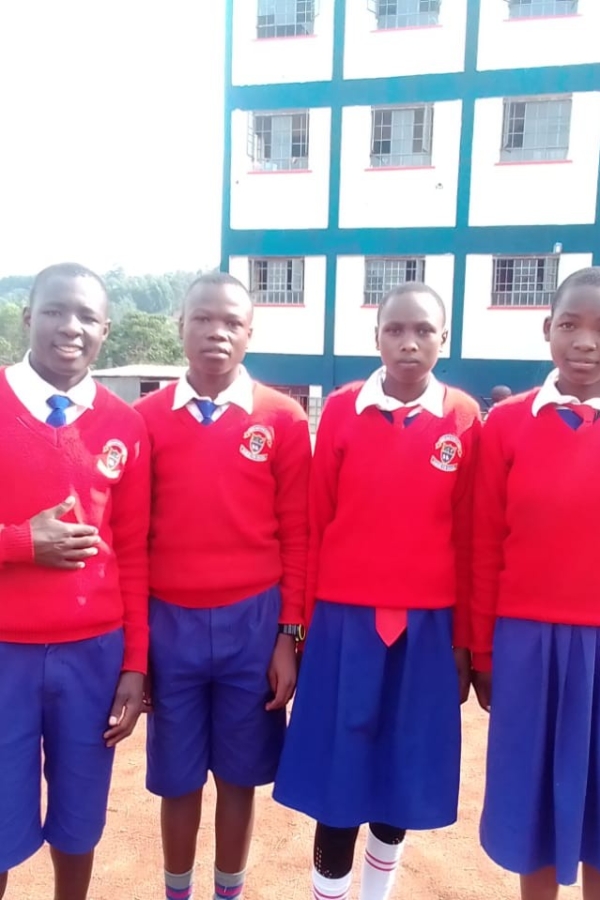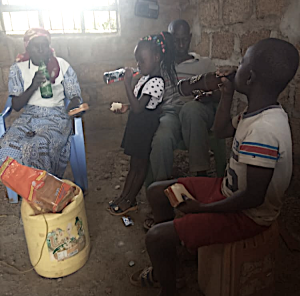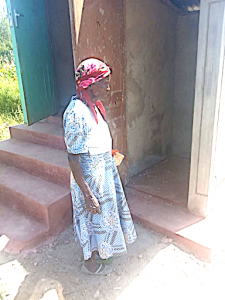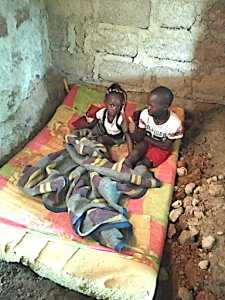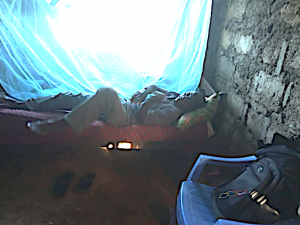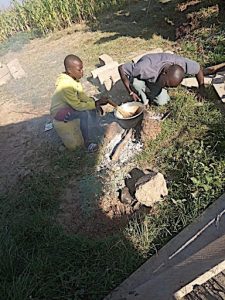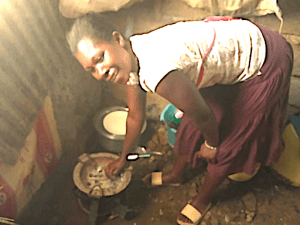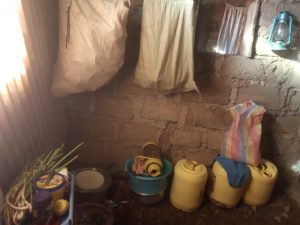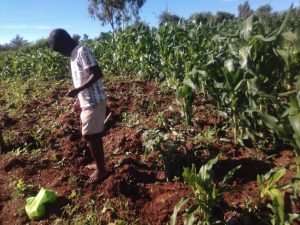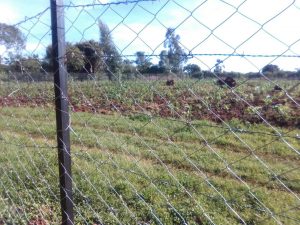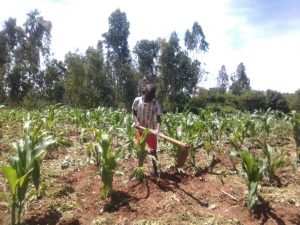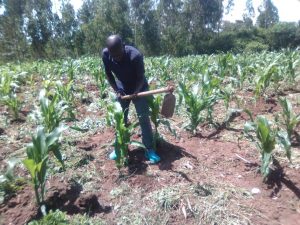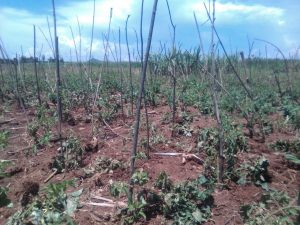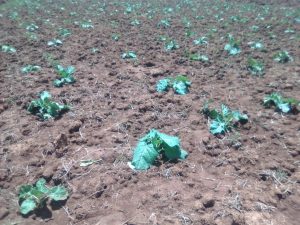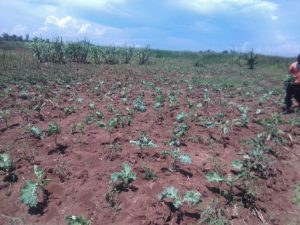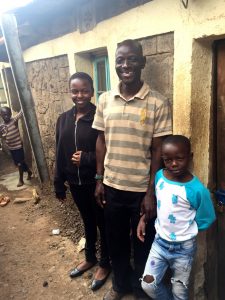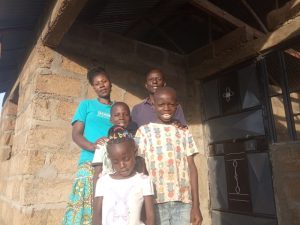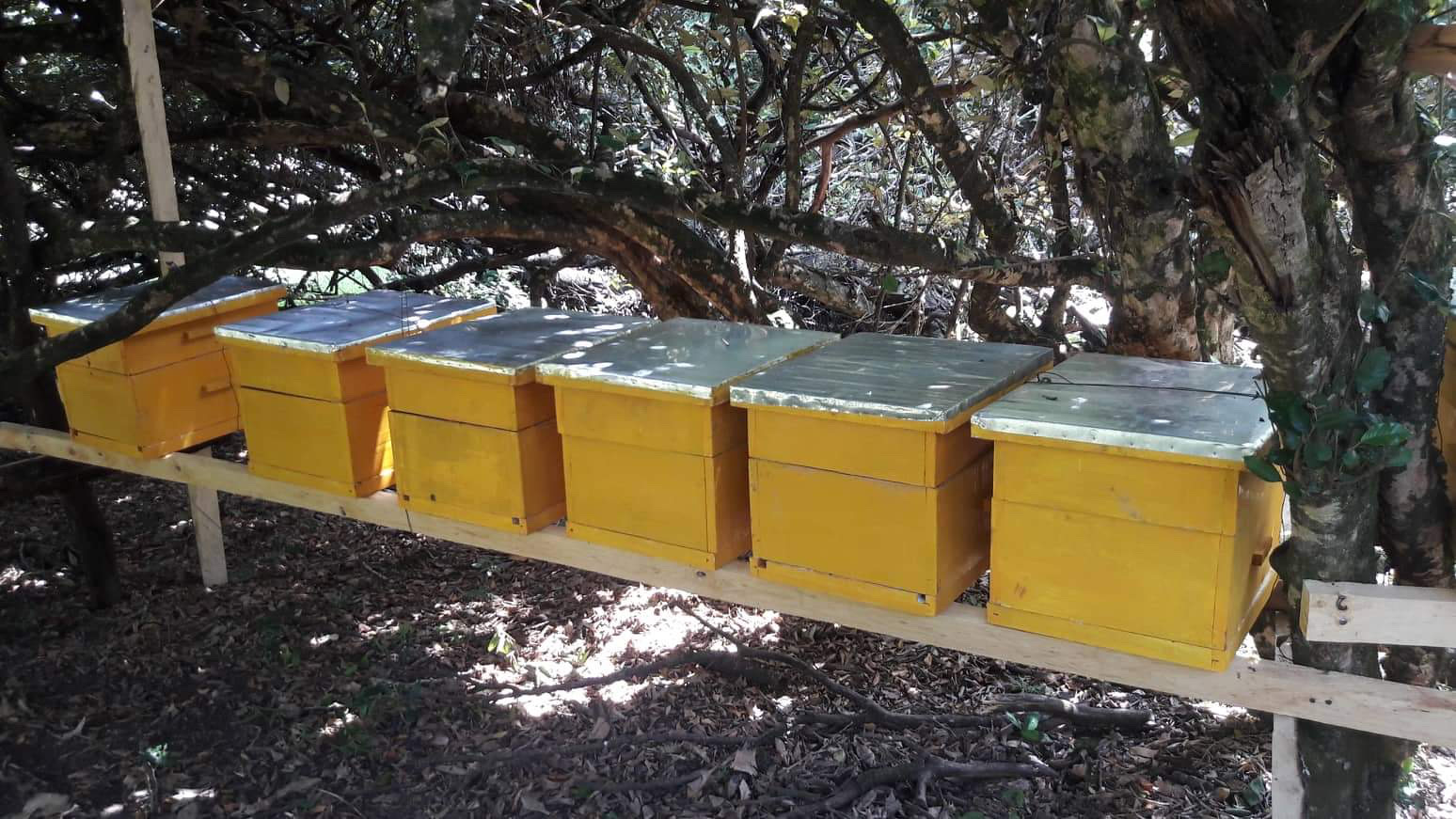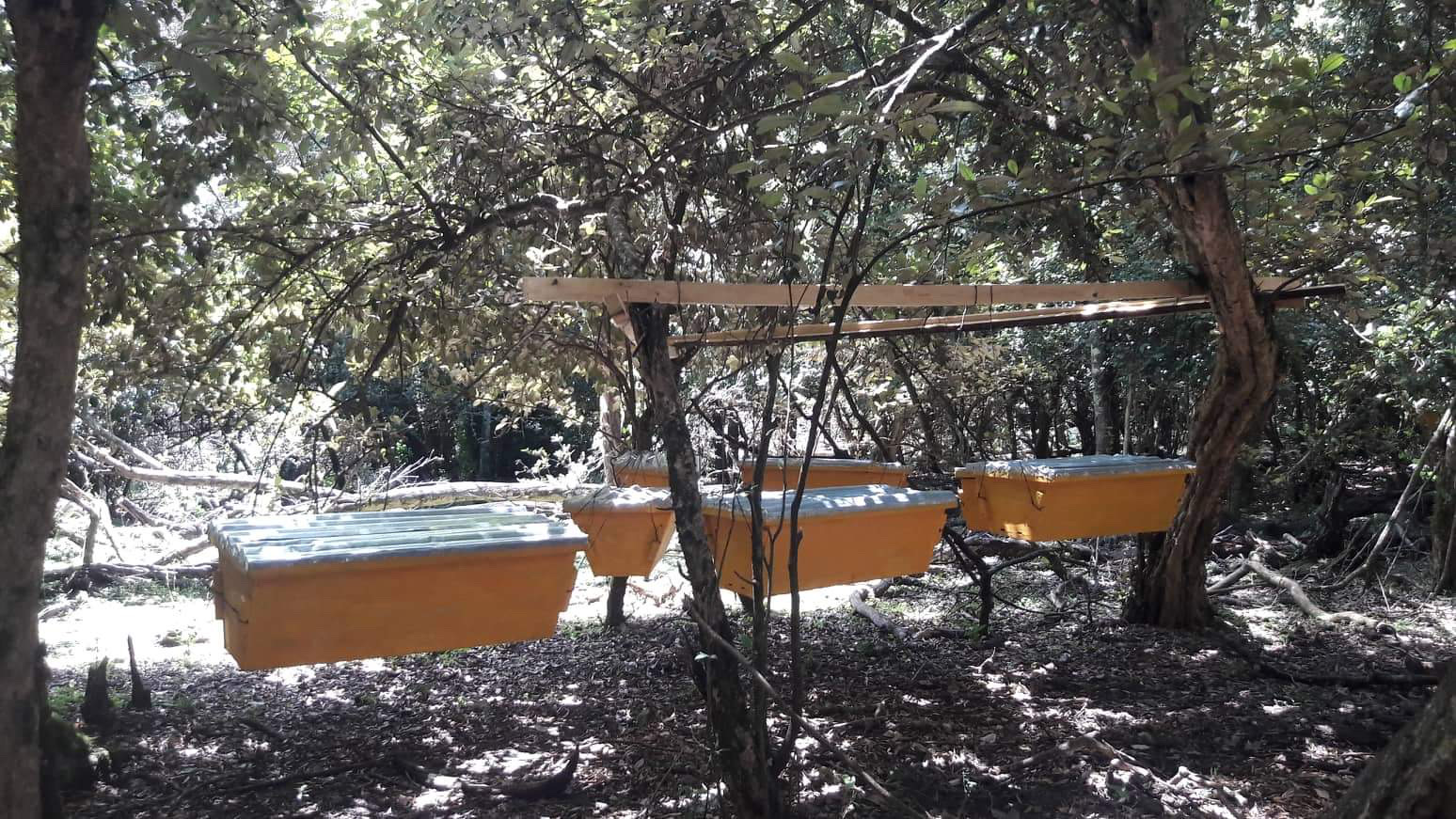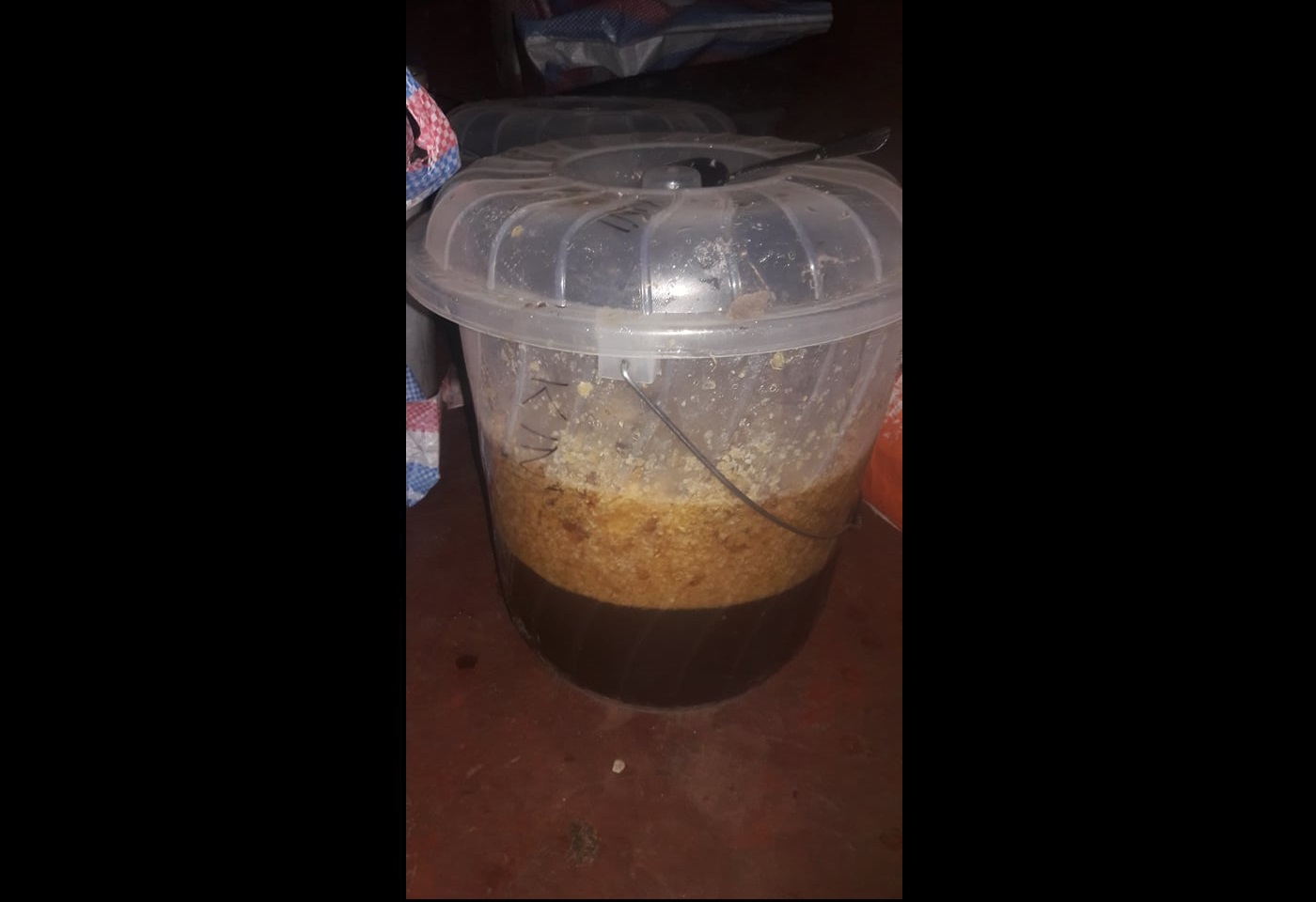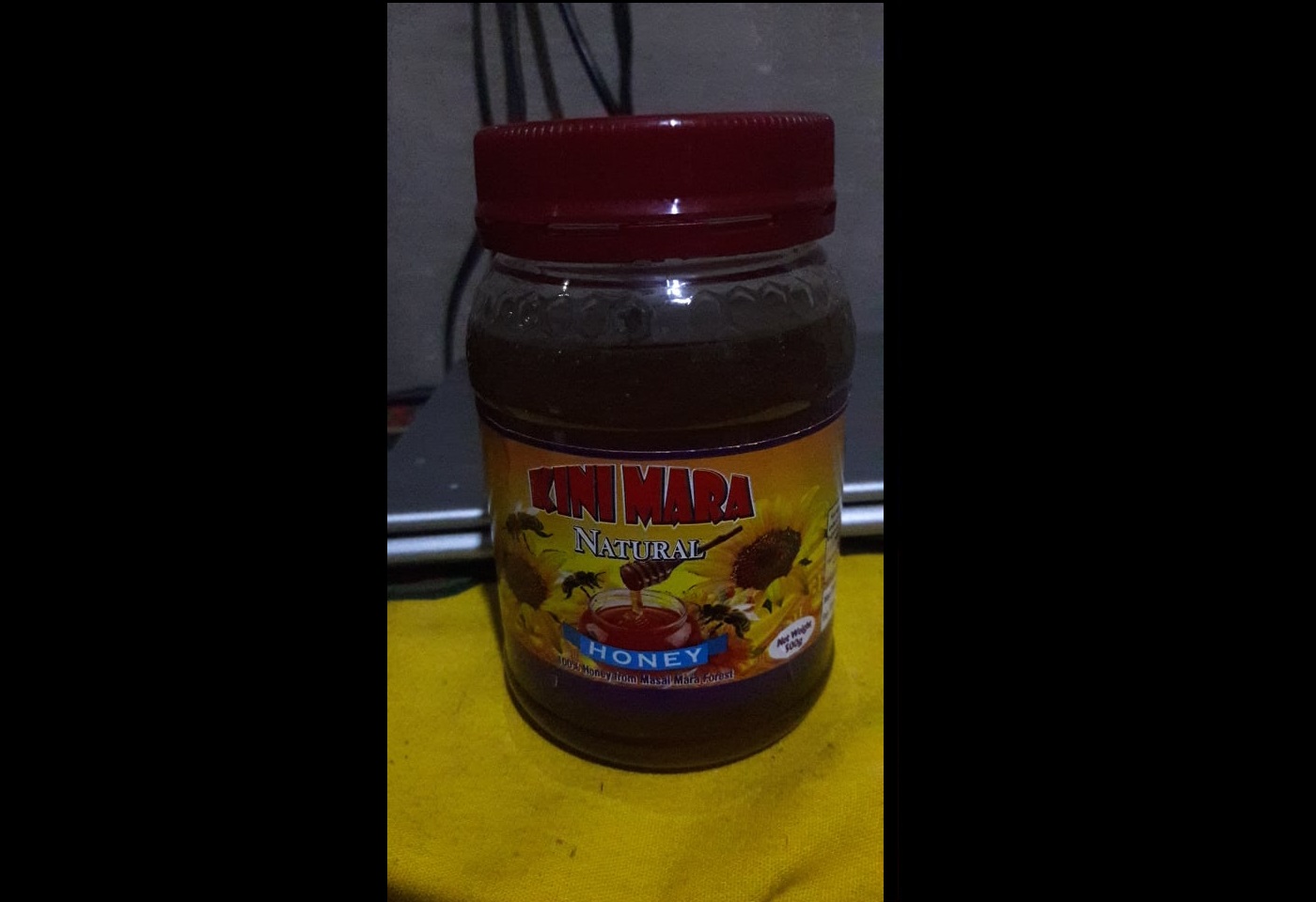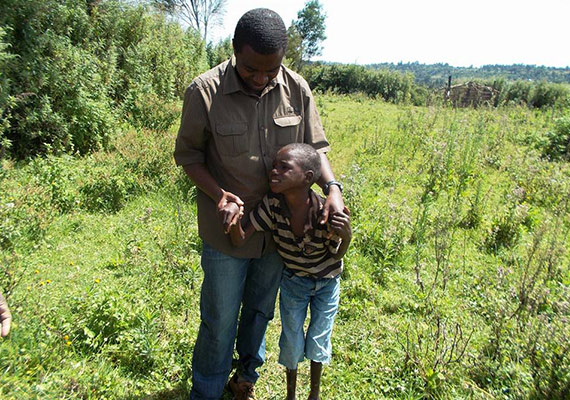Graduation Celebration
Celebrate with us!
Before being streamed into high schools, we each sit exams to establish which school we will attend in high school. Afterwards, we celebrate!
Enjoy these pics of our graduations (some from Nursery School and some from Middle School) and a video of a group dance – something we love to do to celebrate life’s high points!
If you would like to help us and other students continue our education,
please donate to Education Care Projects Kenya.
Thank You!
Samson at University
Samson created this video to show us his lodging at university. ECPK has sponsored him since he was in primary school. His university fees are paid by a government scholarship. ECPK looks after accommodation and food for Samson. Thank you for your constant support and prayers.
Meshack’s Boys – Back to School!
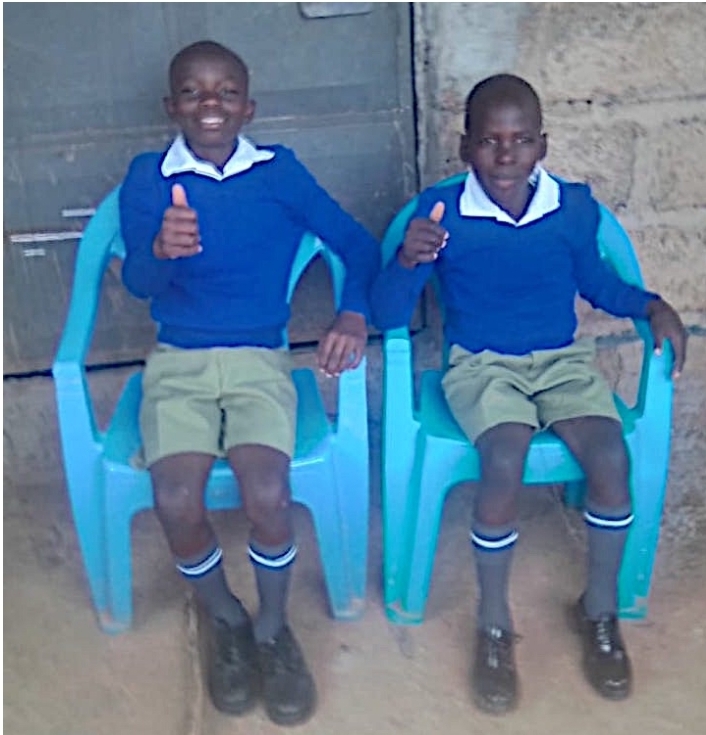
James and Vincent in their new uniforms.
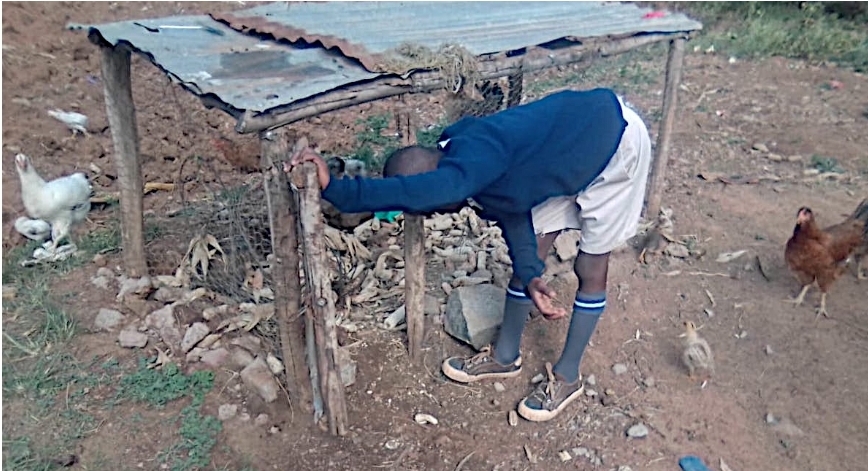
James checking on the chickens.
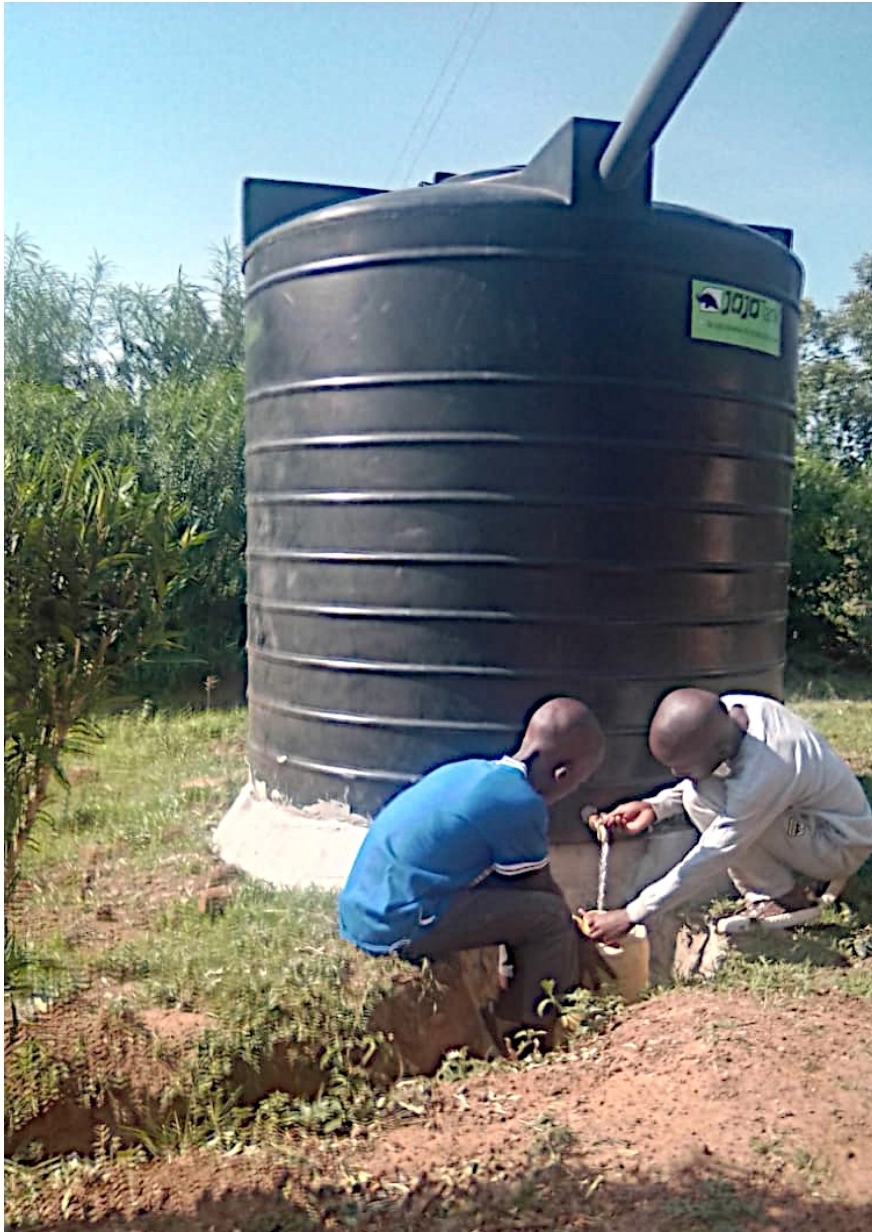
Syprose goes to college after years of dreaming and praying thanks to wonderful sponsors!
At first, I was shocked and had no word to tell Meshack when he broke the good news to me! This is because I had for a long time prayed that one day I join college to pursue a course of my choice and in this case catering and hospitality. I love cooking so much so that I said to myself that one day I become a cooking professional.
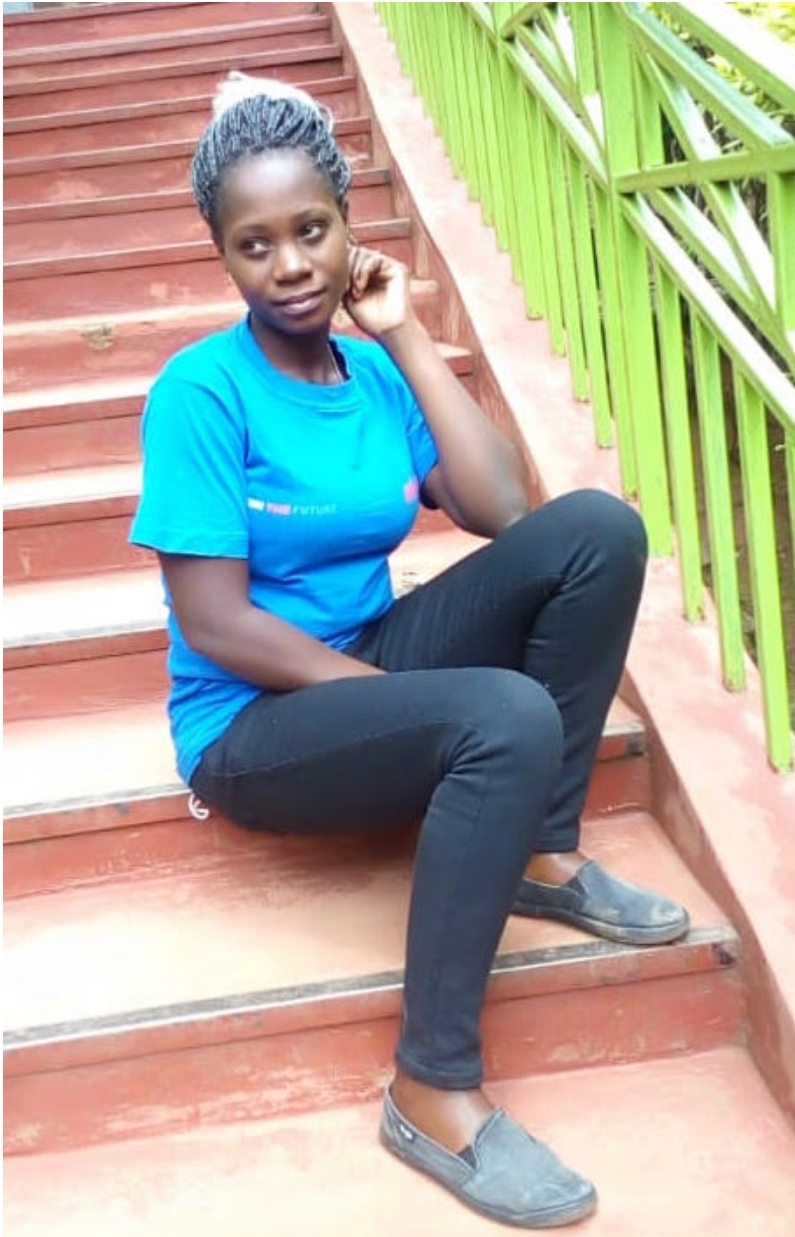
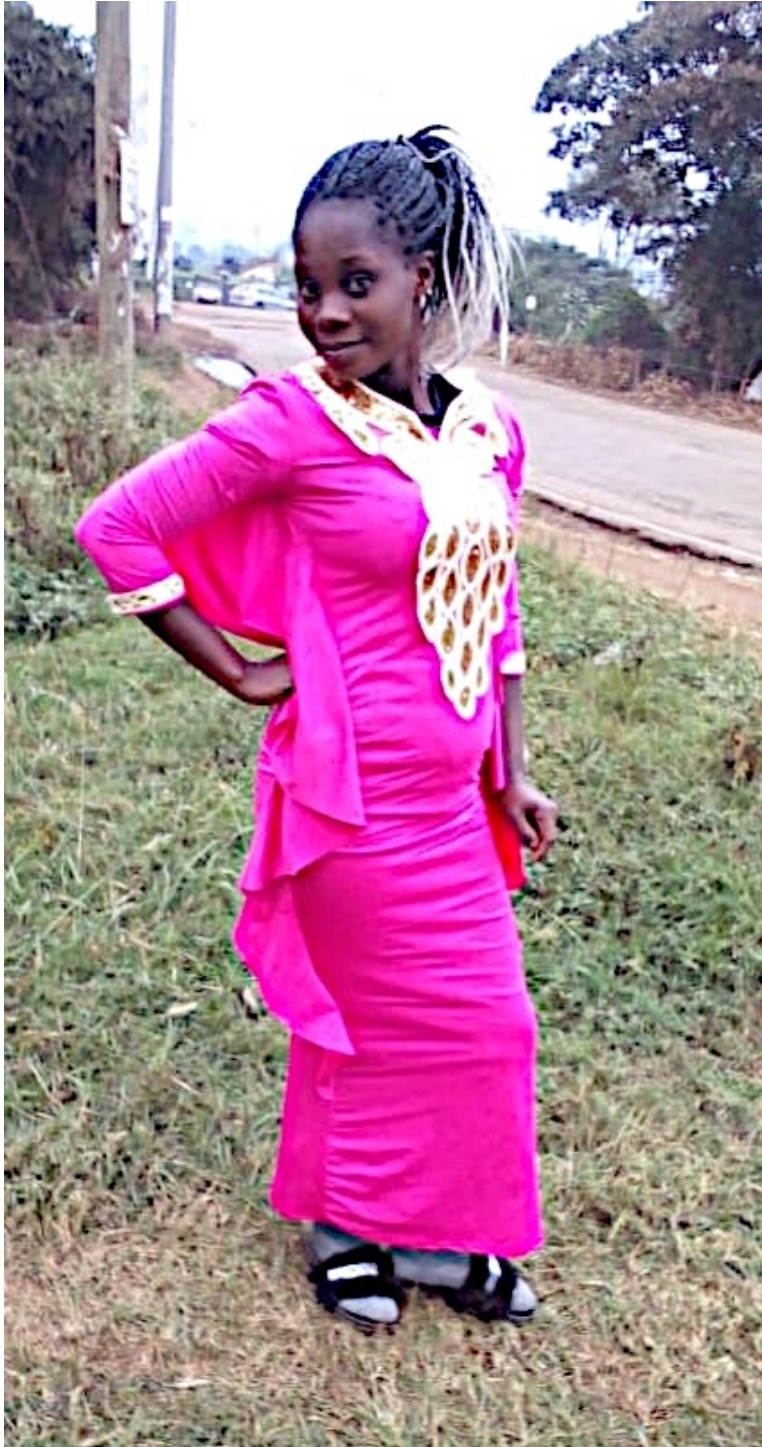
I am going to study for a whole year, in a two-year course with no problem at all! I will also be able to attend church regularly with my new clothes and suitcase.
I will be writing to you from time to tie to update you on virtually every step that I make in college.
May the good Lord be with you all the time.
Sincerely yours,
Syprose
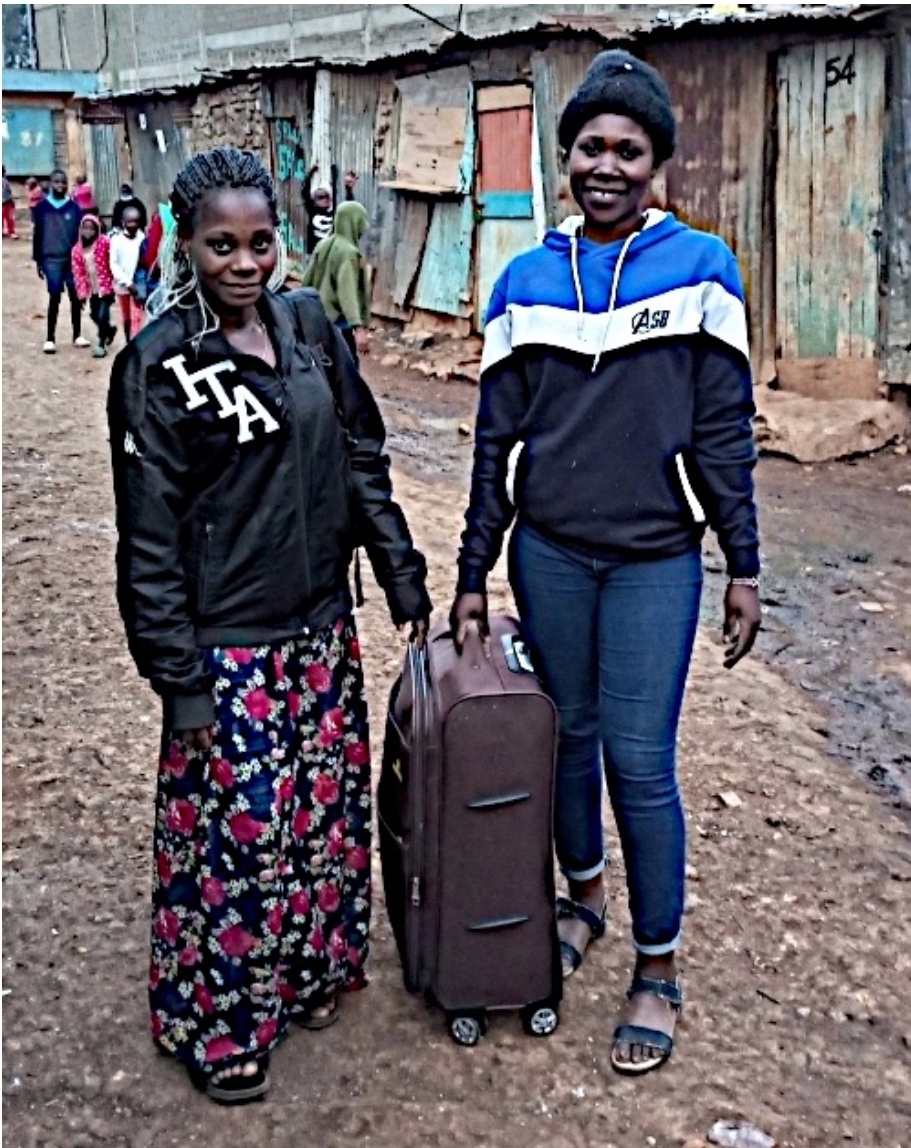
CMK Friendship Evangelism
-
- Adopted Neighbours
Living across the road from the Oderos, Vincent and his grandmother Salome are the first two receiving aid through Chuno Maler Kodero. Vincent has ‘adopted’ the Odero family and has found a great brother and friend in James and food at the family table!Salome, 88 in October, has a widowed daughter with several children and grandchildren living far away in Kericho county whom she rarely sees.
-
The Kodero Family Moves In!
In June 2021, the Odero family moved into their home while they are finishing it. They now live on the property where they run Chuny Malor Kodero. Click through the pics for more of the story!
New Bedrooms
A cot and chair make this a comfortable place to rest!
Cooking!
The sunny dry weather still made it pleasant for Meshack and James to cook the porridge outside.
Sheltered from hot, cold, wind and rain, Caroline sets up her stove in the new kitchen.
The kitchen has water containers with water carried from the lake and hopefully soon, rainwater off the roof when they get guttering and a water container. A lantern for evening cooking and meals. A charcoal stove. In three years they hope to be burning their own homemade charcoal from their own harvested bamboo!
BAD NEWS! April 21 – 2021
 Pic 1: Young James surveys the damage.
Pic 1: Young James surveys the damage.

April Update
Meshack says “look at my beautiful garden!”
The rainy season has begun – the family are expecting to harvest and store enough maize and beans so that they won’t have to buy any for their needs!
Pics: Meshack and 11-year-old James tend the garden.
March – Chuny Malor Kadero Family
Stick Cars!
Buy one and help! Judy Astleford made a ‘stick car’ for her grandson and was amazed at the number of people who wanted one after they saw the ‘stick car’ in action! Now she sells them for $15 to raise money for her project in Kenya: Chuny Maler Kodero Homes. Let us know if you want one and we will connect you with Judy!
The unfolding story of Meshack Odero
In 1998 Meshack was working for a guard company as supervisor of the guards on the road where ADRA South Sudan had its office. He based himself at the ADRA office and made himself so useful that soon they took him from the guard company and employed him for a variety of jobs (cashier, reception, store, logistics and lastly sent him to South Sudan for a project).
An ‘open heart’ was Meshack’s way of life but working for ADRA gave him a taste for helping in a bigger and more organised way. Unfortunately, when the project in South Sudan was turned over to nationals, Meshack’s employment ended. Life consisted of finding whatever job he could to feed, clothes and educate his family – and any neighbour in need as well!
Introduced to several Australian people who have needed help in Kenya, Meshack has endeared himself to them and proved invaluable. Unfortunately, their time in Kenya have not been long term and he resorted to odd jobs – doing a bit of gardening here, selling a few books there, grinding and selling cornmeal (posho).
Along with many others in Kenya, finding employment was getting harder and harder as the economic climate worsened.
Meshack’s oldest son, 24-year-old Zadock found himself a sponsoring organisation and was studying analytical chemistry. Meshack’s bright and personable 16-year-old daughter Sylvia was sponsored by folks in Bundaberg to go to a good boarding school that would give her the opportunity of one day getting into medicine. Little James was in elementary school and Mitchele was ‘helping’ mummy who was doing whatever seamstressing jobs she could get. Meshack found employment away from home and hardly ever got to see his family.
Then COVID-19 hit!
Chuny Maler Kodero homes
(‘Open heart home of the Odero family’)
Chuny Maler Kodero Homes is an evolving project partner of Education Care Projects – Kenya!
The aim of this project is twofold.
1. To transplant a very worthy family from the slums of Nairobi and re-establish them onto the land of their tribe.
2. To turn this family’s commitment, passion and dream of helping others into a reality by capitalising on their talents and commitment enlightened by their personal journey and experience.
History: Believing in the ‘give a rod, not a fish’ approach to aiding this family, Judy Astleford, Joy/Bob Butler and Carole/Leon Platt have, over the years, searched for and proffered various ‘fishing rods’ which have kept the family alive but only ‘treading water’ rather than thriving.
When COVID-19 hit Kenya, the notion that we had given them the wrong fishing rod for the waters they lived on birthed the idea of putting them back on their tribal land, with the hope it would:
– establish their self-sufficiency
– put up a facility to take in or otherwise aid the homeless of the community and other sponsored children of ECP-Kenya
– set an example and initiate a discussion with the community on progressive and enlightened ideas to break crippling shackles of tradition (such as burial and death rituals)
– use environmentally sustainable tools and methods in living and work (such as composting toilets and foot pumps to irrigate the land)
– practice NEWSTART principles for personal health and in any feeding programs that could evolve (already they are helping one grandmother who is the sole career of a boy whose parents both died of AIDS)
– and all the while bringing comfort and cheer to the community!
Nestor
Since the establishment of Hands of Hope East Africa, it has been an incredible journey both for us as an organization and the children we are supporting.
It has been a privileged to personally witness, the growth of these children who were once homeless, sick, wild, and illiterate and stealing from people in the streets. They had no one to turn to and had nothing to hope for.
With help from Education Care Projects – Kenya it is just amazing how the lives of these children have changed: knowing that these children were once living, fighting and begging in the streets, in the past and seeing them now, in school, reading, singing, healthy and talking about the way God has changed their lives is just wonderful.
These children have formed a community with one another constantly, laughing, smiling and making jokes whenever they are together. They are happily living like real sisters and brothers, their love for one another is very real. While we thank Education Care Projects we know that this beautiful change is something that can only be attributed to a miracle from God.
Some of the children were once sick. Dennis had serious eye problems and could literally have gone blind but thanks to his Australian sponsor was able to be taken to see an eye specialist and now he is getting better and can clearly see.
Dismas was abused and abandoned and was sick almost to death when he was found but with the help of Education Care Projects – Kenya his life was changed. He was provided with medical treatment and care and now he is a healthy and happy lovely boy who is now attends a school for children who are recovering from trauma .
It is satisfying to see these children in school, in good health;
spiritually physically and mentally. They were once wild and abusive and they used to be thieves but now the only thing they can steal is your heart.
Thanks again Education Care Projects – Kenya for helping us children tbe where we are now!
God bless you.
Nestor, Hands of Hope
Books Available – $20
Support ECPK by gifting copies of One Trip to Kenya to others.
Readers report being inspired and lifted toward God and His love for His children while reading this wonderful sharing book!
First DONATE the proper amount for the number of books you want.
Then EMAIL US with your contact details and the number of books.
We will post you the books as quickly as possible!
KINI Mara Honey Project
In May of 2019, I (Carole) spent a week with Barbara Parkins, the founding director of KINI. KINI is an NGO based in Kenya and a partner with Education Care Projects Kenya in providing education and care to as many Kenyan children as possible.
Education Care Projects Kenya, based in Australia, is always looking to fund projects that have the potential to replace KINI’s reliance on overseas donors as that is very much their preferred option.
Barbara had written a proposal to produce Mara honey to be sold on both the local and tourist markets. The local forests provide an abundance of flowering trees and shrubs and offer ideal locations for hives. The more we considered the proposal the more potential we saw for it to generate funds and provide training and a casual job for at least one local woman.
ECPK decided to fund 25 hives and stands, a suit and gloves and an assortment of jars, lids and labels.
The first harvest from three hives has filled 89 jars. They will sell in Nairobi for 5000Ksh ($6 AUD) a jar.
Once COVID is not an issue and the tourists return it will be sold in small jars at the lodges and souvenir shops.
Current Needs
Barbara’s House
Barbara Parkins lives and works in Kenya. She is the founder of KINI which is an organisation that takes care of vulnerable Maasai children and enables them to have an education.
Education Care Projects Kenya and KINI are partners in this work. All of the children, who have no other safe place to go, have been home with Barbara since March when schools closed in Kenya. It is getting very crowded! Three of these girls are ECPK children and we are very thankful for Barbaras support of them.
Please watch “Barbara’s House” and listen to Barbara as she explains just how difficult it is currently is.
Barbara has 10 acres of land with a Early Childhood Centre already built on it. It is surrounded by an elephant proof electic fence and is the perfect place for her new house and a recue centre for girls.
After spending three weeks with her in January 2020 we have seen the need first hand.
She has a quote for $80,000 USD which currently $120,000 AUD.
If you can help please click on DONATE and indicate that it is for the KINI project.
Kenya Life In Lockdown – Chuny Maler Kodero Family
March 26, 2020 – Zadock’s University closed its doors for a supposed two weeks, so he went home to the family in the Kibera slum of Nairobi.
March 30, Sylvia and all her schoolmates were released early for their 2020 March school holidays.
Rather than go the long-distance home, Sylvia went to aunt Agnes’s home in Siaya County which was much closer to school.
April 15, Meshack was home for a long-overdue and too short holiday, due to head back upcountry to
work, when lockdown was declared.
April 20 Sylvia developed a fever and was put into quarantine which lasted 6 weeks. Aunt Agnes rented a dilapidated room 20 miles from where Sylvia was quarantined so she could make the daily visit to bring her food and emotional support. They were allowed to talk through the window. The family in Nairobi were heartsick that they weren’t able to be near Sylvia and fearing they might lose her to COVID-19. Tests proved her COVID-19 free.
May found Meshack out looking for jobs one day and trying to avoid security when the landlord’s sons
arrived at their rental rooms and threw Caroline, Zadock, James and Mitchelle, with their possessions,
out because they hadn’t been able to pay the rent.
Thank God that even in the most remote and poorest communities, cyber technology is available! Meshack was able to contact us in Australia and we were able to pool resources and send money so they were back in their rooms after only a few days of camping with true neighbour friends in their tight quarters.
Lockdown Activities
Mitchell and a little girlfriend in the same rental enclosure fretted with being locked in. James, a little older, could understand the situation better and did his part to help keep them happy and distracted from their growling empty stomachs. The most successful game was adding and subtracting competitions using small stones. Getting the numbers right was rewarded by a drink of porridge – water thickened with a little flour.
Says Meshack, ‘There were some days when we would wake up in the morning about 8 am, have porridge
(thickened water) then take 2 hours for worship – telling Bible stories, singing and praying. Next we would try to get the kids to sleep again up until noon, even if they weren’t tired. I would sneak around to get water and to bath in, in the small enclosure. Then we would play math games. A few more hours of talking about the Bible stories – remembering stories of the hard times Bible characters had had, then it would finally be dark again! We didn’t go out except to use the community pit latrine!’
Out of the city in Siaya county, where life was a bit easier, Meshack’s sister Agnes, was casting around for
ways to help the family. She bartered one of her goats to a farmer neighbour who gave her foodstuffs in exchange.
Twice she approached a truck company near her place and for a price, they brought the food packages to Nairobi when they transported farm produce to the city. ‘This brought us immense relief as the kids were constantly crying for food and ‘even the rock counting games could not work all the time.’
Meshack says, ‘I had to get up early and go to the company depot to collect the food Agnes sent walking a long distance since I had no money for transportation. Security personal kept stopping me but allowed me to continue when I told them I was going to get a package of food. Lastly, two security guards escorted me to the depot to see if I was telling the truth! I had to carry my package of 15 kg.’
On the journey home, a security officer stopped me and finding out my package was food and I had a long way to walk, she took me to a matatu stand, put me on, and paid the fare!’
‘A good neighbour who for some time continued to have work at a supermarket nearby brought two loaves of bread to the family one evening. Her child was among the kids playing with Mitchell in the courtyard.’
Little Mitchell sometimes appeared very weak, so most of the time Meshack, Caroline and Zadock would strive to ensure the little food they managed to get was kept for the kids. The adults sipped water every time they felt hungry.
The Government did make some efforts to feed the starving masses. Meshack tells of one attempt were residents were told by an area administrator that, following certain COVID-19 restrictions, the people were to meet at a particular school where they would be given food rations. The crowd gathered early one morning at the designated meeting place where they were met by a contingent of security personnel ready in full gear to deal with any unbecoming behaviour.
‘Let me tell you,’ Meshack says, ‘the moment people spotted the trucks full of food of rice, maize, beans, cooking oil, etc the security personnel could not calm the unruly mob that surged forward, grabbing what they could manage to grab. Security personnel started firing into the air to scare the mob.’
Five people lost their lives by being trampled on during the struggle. The ones that lost their lives were the elderly because they could not run fast. Meshack says, ‘My friend and I, sensing the danger, managed to escape without any injury.’
So the government decided to try leaving food at the doors and blowing whistles to alert people to retrieve their food packages. This time thieves swooped in to snatch the food packages away before the people could open their doors to collect their rations.

